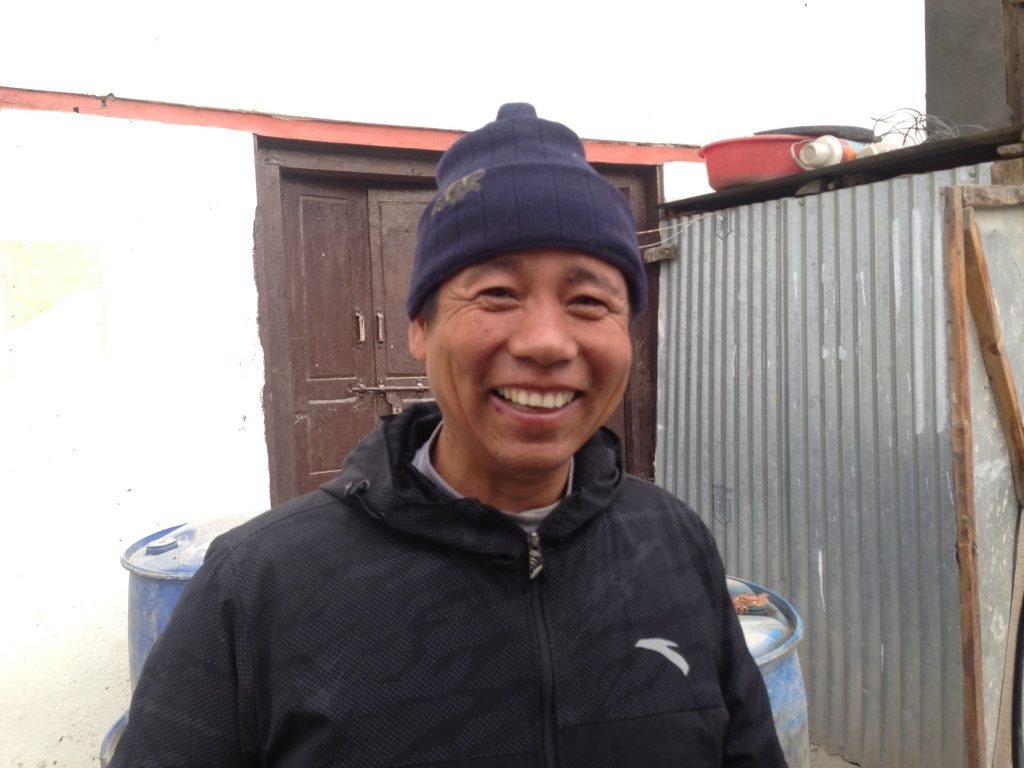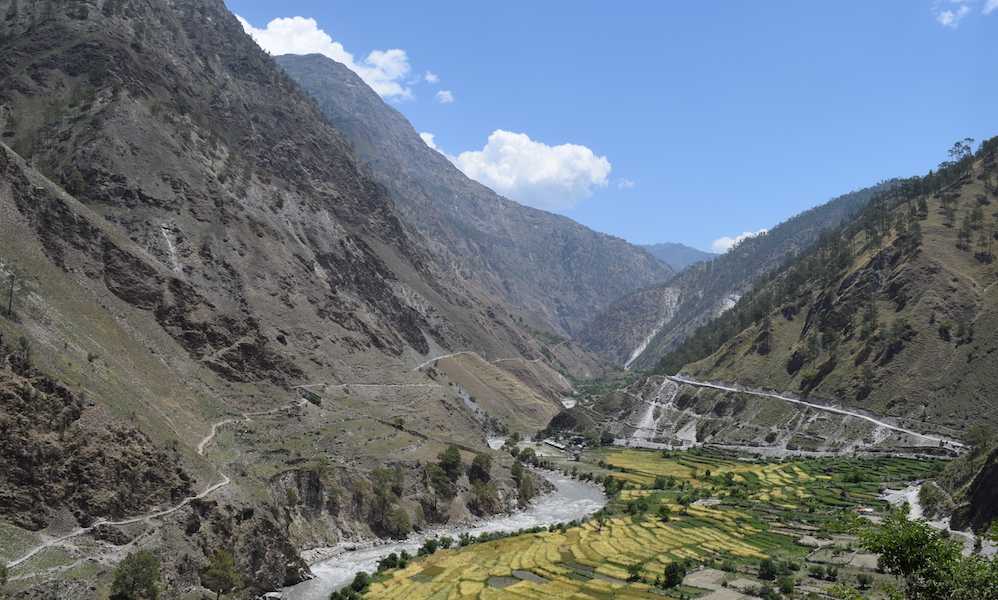On his first trip to Nepal, INF Australia’s Australian Programs Manager Steve Barnett reflects on the challenges of working in the mountains – some of the most remote and difficult-to-access areas in Nepal.
Life in the mountains of northwest Nepal is a constant battle against gravity. The roads [in Australia we’d call them 4WD tracks] wind up and down impossibly steep hillsides, and almost every day new rocks fall from the unstable slopes above. The only way two vehicles can pass is to defy the laws of physics and somehow shape shift around each other.
In the past year alone, Mugu district has seen the roads closed for months due to heavy snow in winter and excessive monsoon rain. And even when they’re open, it’s not uncommon to have to wait long periods while tractors and trucks are loaded up and moved. No-one seems to be in too much of a hurry.
We accompanied INF’s Mugu Team to their nearest working area to witness a self-help group meeting, which was still a dusty, bumpy and at times hair-raising two-hour drive from Gamgadhi, the capital of Mugu. No point in complaining though – before the road went through last year it was a two-day walk! From the end of the road it’s a further day’s walk to the next working area.
Dal Jit Gharti, INF’s District Project Coordinator, described some of the challenges of doing community development in the mountains: “It’s difficult and dangerous work – being struck by falling rocks is a common cause of fatalities in the mountains of Nepal. The only way the office can communicate with staff that live in the communities is to wait for them to walk to a spot that has mobile reception and call in.”

Mugu District Project Coordinator, Dal Jit Gharti, is passionate about working with poor and disadvantaged communities in the mountains
Dal Jit also mentioned that if someone gets sick or injured, the only way to get to the nearest road is to be carried, and then endure hours of jolting and jarring to get to town. Then if they require airlifting there might be several days’ wait for the weather to allow a plane to come from Neplagunj, a city down south.
All these logistical challenges and risks highlight the ingenuity and commitment of INF’s team in Mugu. They don’t question the value of getting out to remote places to foster positive change through self-help groups, skills training and resourcing community projects. Over dinner one night, Dal Jit’s eyes lit up as he shared just some of the many other ideas he has to improve life for the people of Mugu, including improved agricultural methods, crop diversification, new sources of income generation and climate change adaptation. He’s a humble but very passionate man, and has left family behind to work in Mugu.
Paul wrote to the church in Philippi:
Do nothing out of selfish ambition or vain conceit. Rather, in humility value others above yourselves, not looking to your own interests but each of you to the interests of the others.
In your relationships with one another, have the same mindset as Christ Jesus:Who, being in very nature God, did not consider equality with God something to be used to his own advantage; rather, he made himself nothing by taking the very nature of a servant, being made in human likeness.
It was inspiring and challenging to see INF’s community development workers living this out!
We got to witness the fruits of their dedicated effort at two women’s- only self-help group meetings. Despite being relatively new, the entirely Dalit [untouchable] class group members shared their struggles, aspirations and frustrations with confidence and determination to improve life for their families and neighbours. And witnessing the pride with which they signed their names in the attendance book where once a thumbprint had to suffice? Priceless.



